
UK
Biting: what to do when your child is biting others
6th June 2024
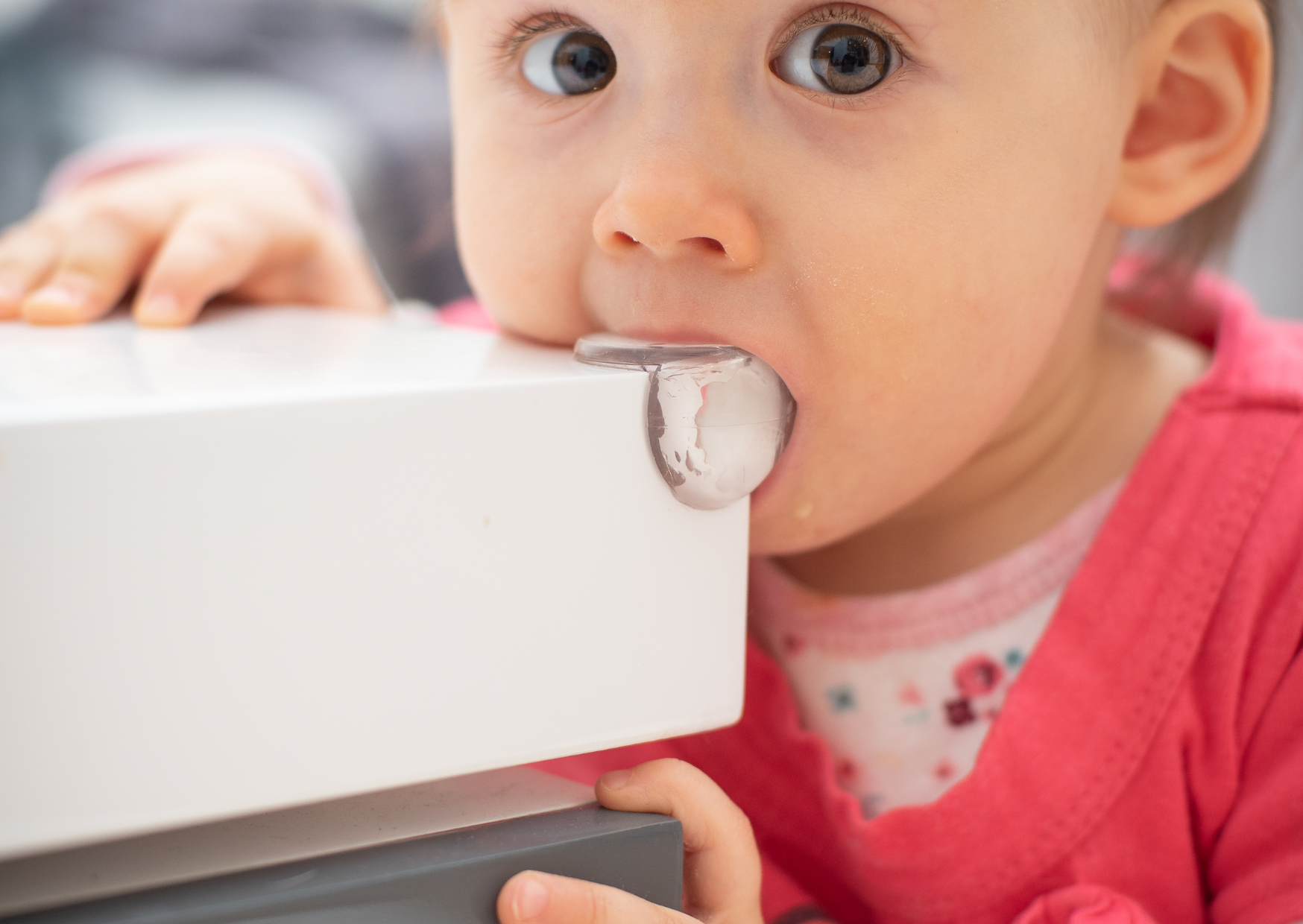
Biting. One day it seems our young toddler is a sweet, cheery little bundle of joy, and the next minute we are giving them a cuddle and feeling a painful bite on the shoulder. Even worse, the educators in their childcare centre are telling you that your child has started to bite other children and “we need to talk about this.”
Let’s get a couple of things straight from the beginning… toddlers do not bite for vengeance. They do not wake up and decide to bite their friends and family. Be reassured, most toddlers will explore biting others at some stage. You are not alone!
But nevertheless, when our toddler is going through a stage of biting others, it can raise all sorts of mixed emotions for us as parents. Embarrassment, anger, frustration to name a few. Inevitably we need to know how to handle biting in ways that don’t shame or punish our child, but also help to keep everyone safe through this temporary madness.
Let's start with what NOT to do...
- It is not remotely helpful to bite your child back so that they can feel what it is like. This thinking sits in the same erroneous zone as “I will give him a smack on the bottom to teach him not to hit!” More likely, biting your child will create distrust and confusion. Remember you are bigger and more powerful than them. Being bitten by a giant only creates fear.
- Same goes for smacking or time out.
Understanding why children may bite
To understand why toddlers bite it is important to first recognise where they are at developmentally. Toddlers are just beginning to become verbal, and they are learning how to interact with others. Their ability to articulate how they feel using language is usually quite limited at this stage. But their feelings are often huge! If you do the maths it is easy to understand why biting can become a mechanism for communication.
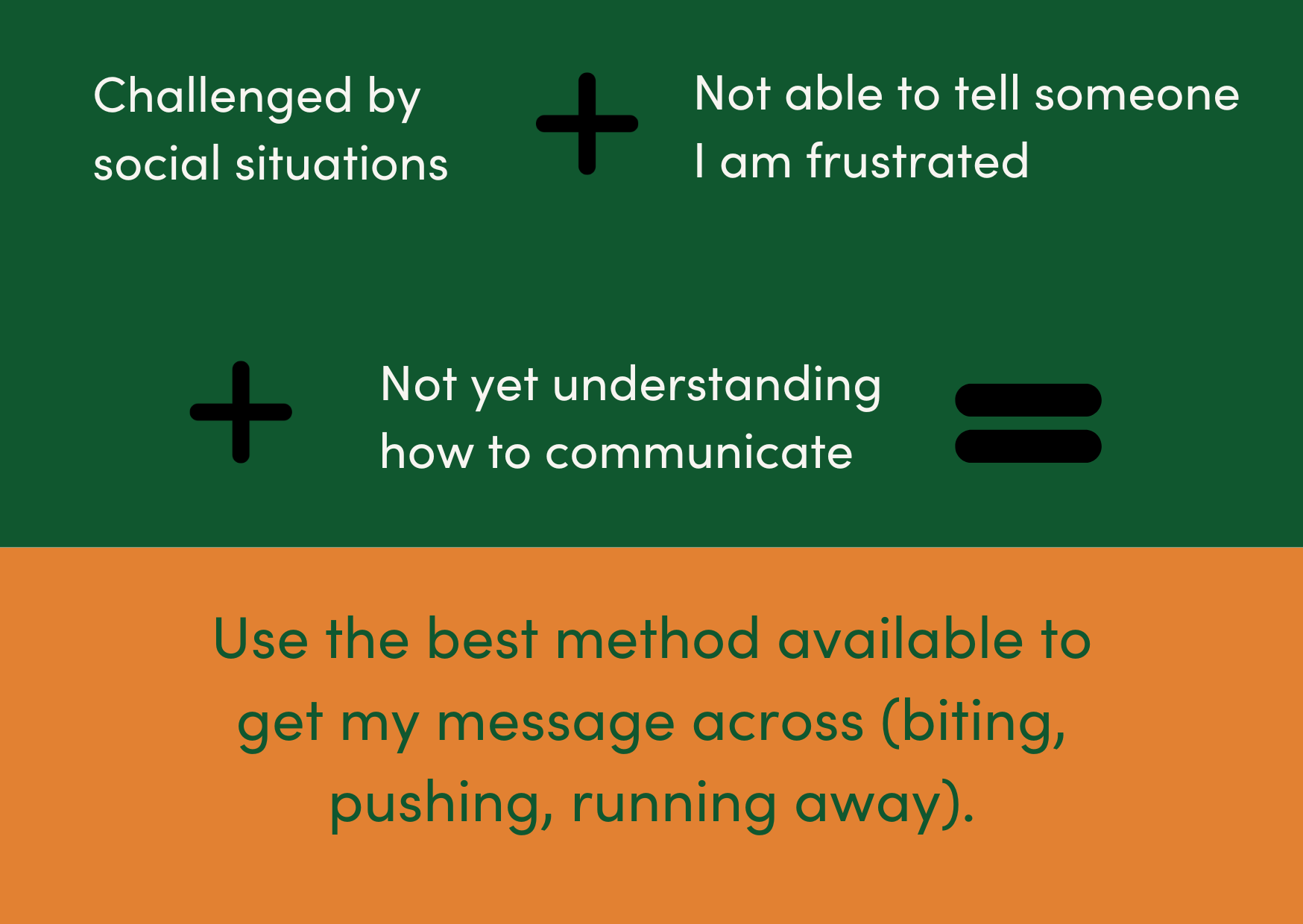
All toddler behavior is communication. It is our job as adults to interpret this as best we can. Biting can be a response to any range of emotions or needs in your toddler;
- Anxiety
- Fear
- Frustration
- Curiosity
- Tiredness
I love this statement from Janet Lansbury...
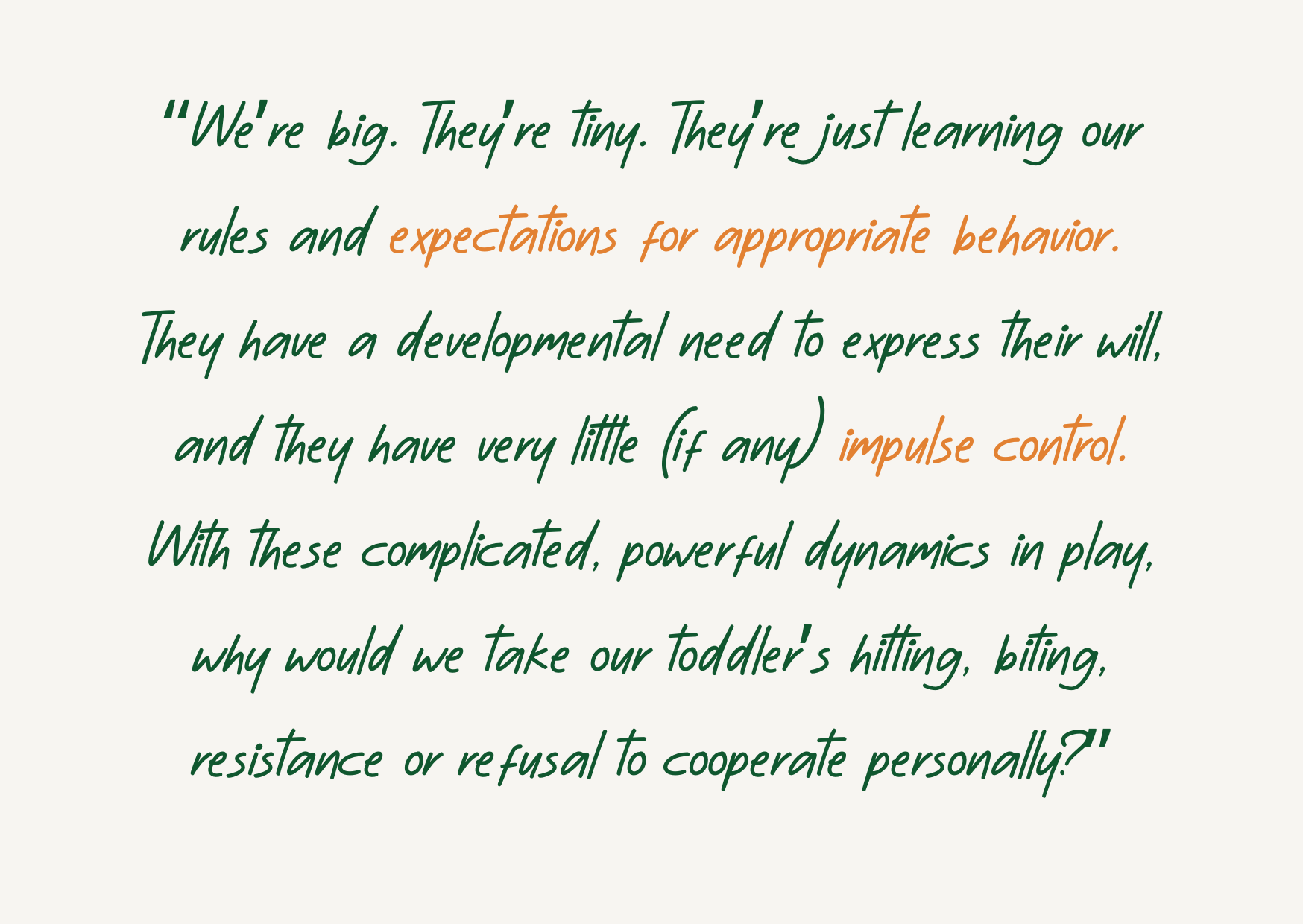
It is helpful if we can be attuned to what is happening in our toddler’s life in order to understand their perspective and what may be triggering this behavior. Sometimes it can be as simple as ensuring they are getting enough sleep, loving attention, or space to play without interruption.
What can you do when your child is biting?
Firstly remember that this is a stage of learning the same as learning to use the toilet, eat with cutlery, sleep in their own bed. Except biting can be a little more painful - for others.
- Give clear, consistent messaging: This means all of the people in your child’s life (parents, grandparents, educators). The sooner everyone is reacting in a similar fashion, the sooner the message will connect in your toddler’s brain that biting is not the thing to do. Deborah Carlisle Solomon (parent educator) reminds us that “Timing is everything, so don’t wait too long to set a limit. Tune into what’s important to you, what’s okay and what’s not, and do your best to set limits before you get angry…. go close and speak to them about it as soon as it starts. The longer you wait and the more they’re doing it, the harder it will be for them to stop and the more likely they’ll be to get upset when you intervene.”
- If your child is biting you, tell them firmly and authentically (without shouting) “Ouch that hurts me.” Let them see your pained face. If you are holding them. Put them down on the floor gently and say it again “Ouch that hurts me.” No need to punish, or wag fingers at them aka “you are naughty.” Telling your child how it feels models clear communication of feelings which is a useful skill they are learning to master right now.
- If your child is going through a phase of biting other children, you will need to shadow them for a little while. This means staying close by when they are playing with others. Observe and take notice of what may be triggering them to bite. Is someone bigger than them getting in their space and frightening them? Is someone taking toys from them and they aren’t sure how to handle this? By staying close when they are with other children you will be able to notice when they need support in social interactions. But also, you will be able to help keep other children safe in the event that your child comes in for a taste test. If you see your child about to bite (usually this requires lightning reflexes) you can put your hand in between them and the other child and say “I won’t let you hurt him.” Very simple, very non-judgmental. But also a very firm, clear message.
- Communicate with your child’s educators and make a plan together. If your child attends an ECE service, and the staff let you know that your child is biting, work together with them to create a plan for a consistent response. Early childhood educators are trained in how to manage biting, so lean on them for guidance. Trust that your educators have everyone’s best interests at heart.
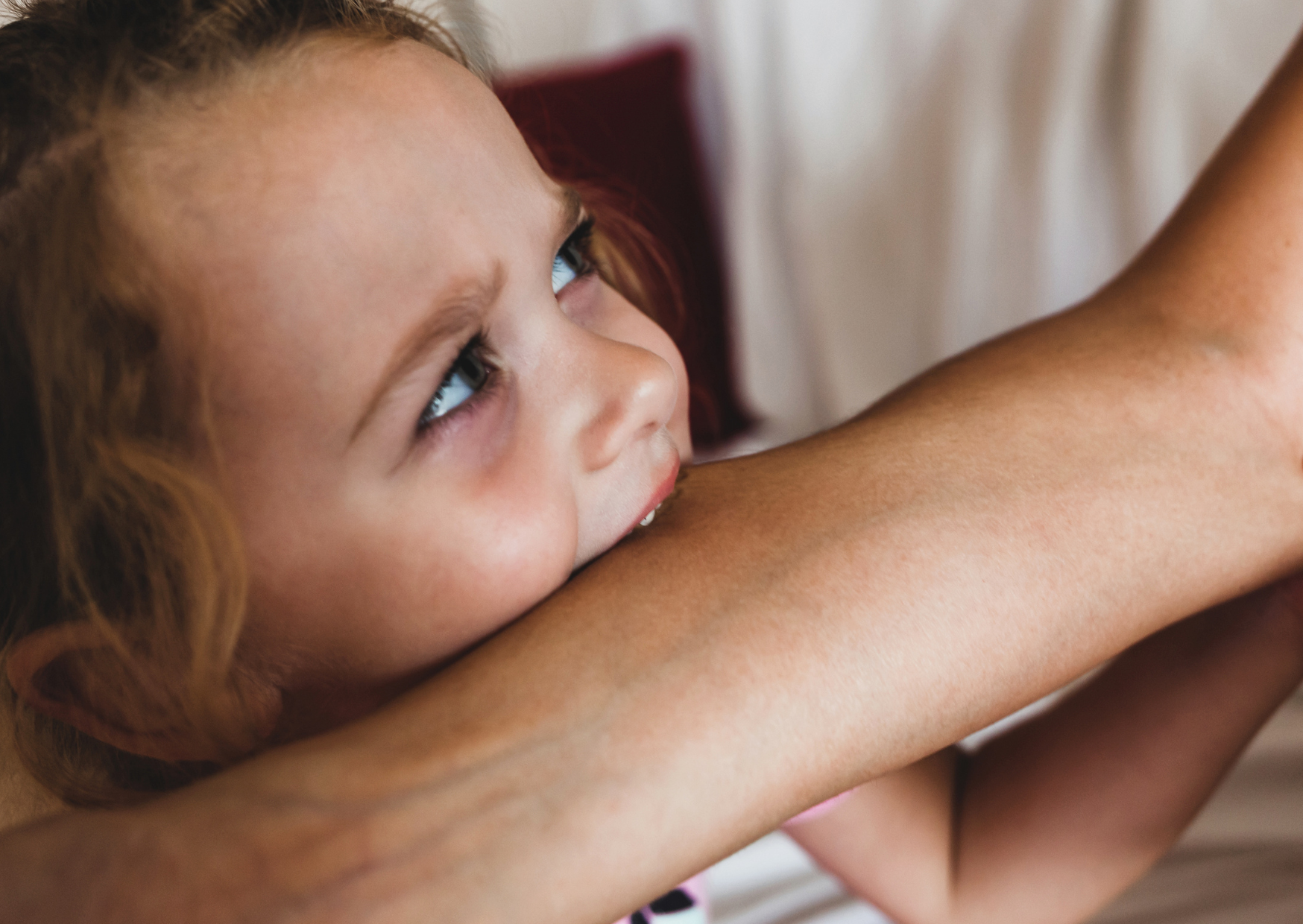
Remember, that biting is a stage of development that your child will work through. If they are supported rather than punished, you will soon see that they will move on from this behavior and your lovely bundle of joy will find something else to test you with.
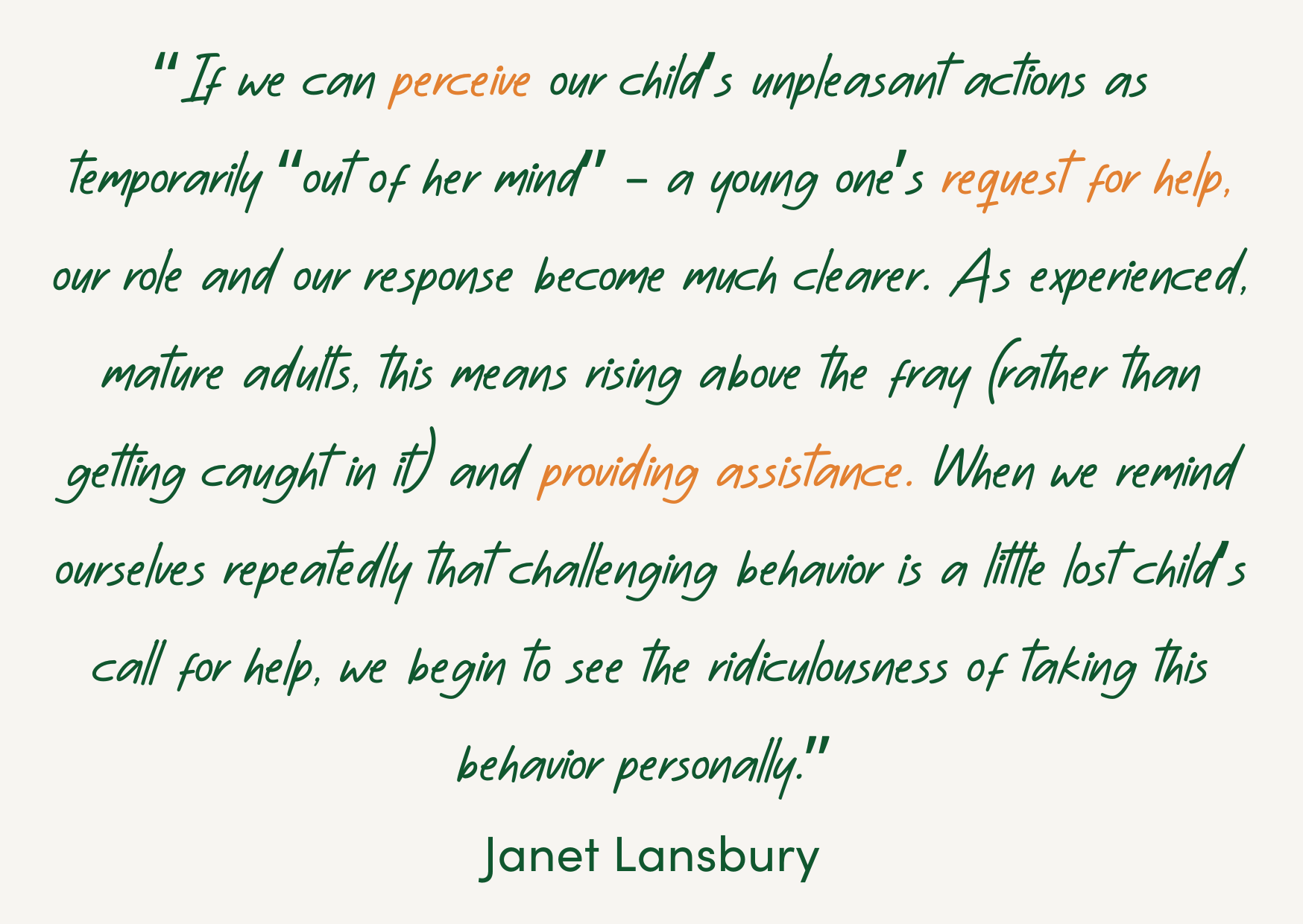
Empty space, drag to resize
Have you seen our Members Club?

Cost-effective access to over 100 webinars, courses
and resources on demand.
and resources on demand.
*Special teams rates available
Empty space, drag to resize
People who enjoyed this blog also liked
Empty space, drag to resize
Webinars you may like
Empty space, drag to resize
Courses you may like
Empty space, drag to resize
Want to stay up to date with our blogs and professional learning content?
Thank you!
Empty space, drag to resize
Join our community
Subscribe to our mailing list for exciting updates and alerts when new resources, courses or webinars are added.
Thank you!
© ECE Learning Unlimited 2022. All Rights Reserved
